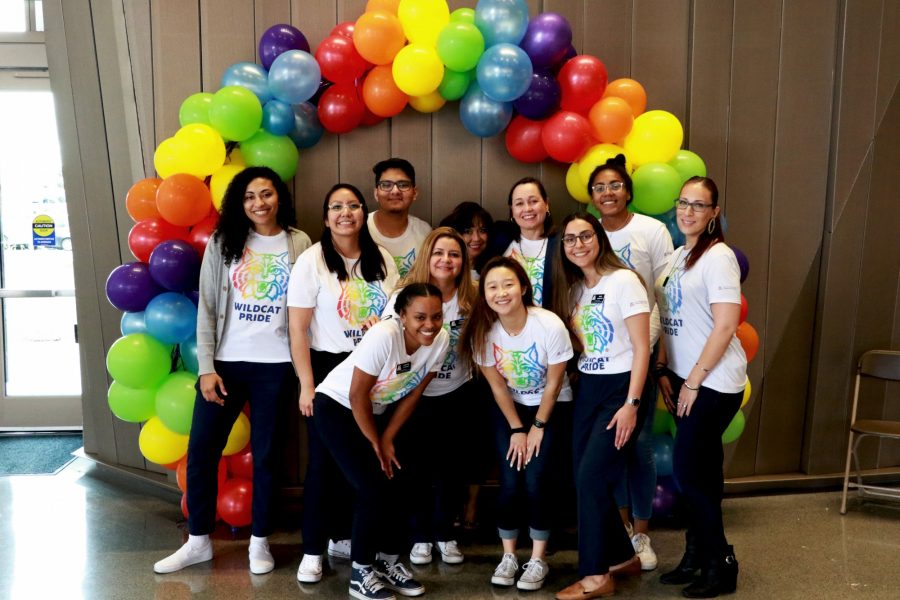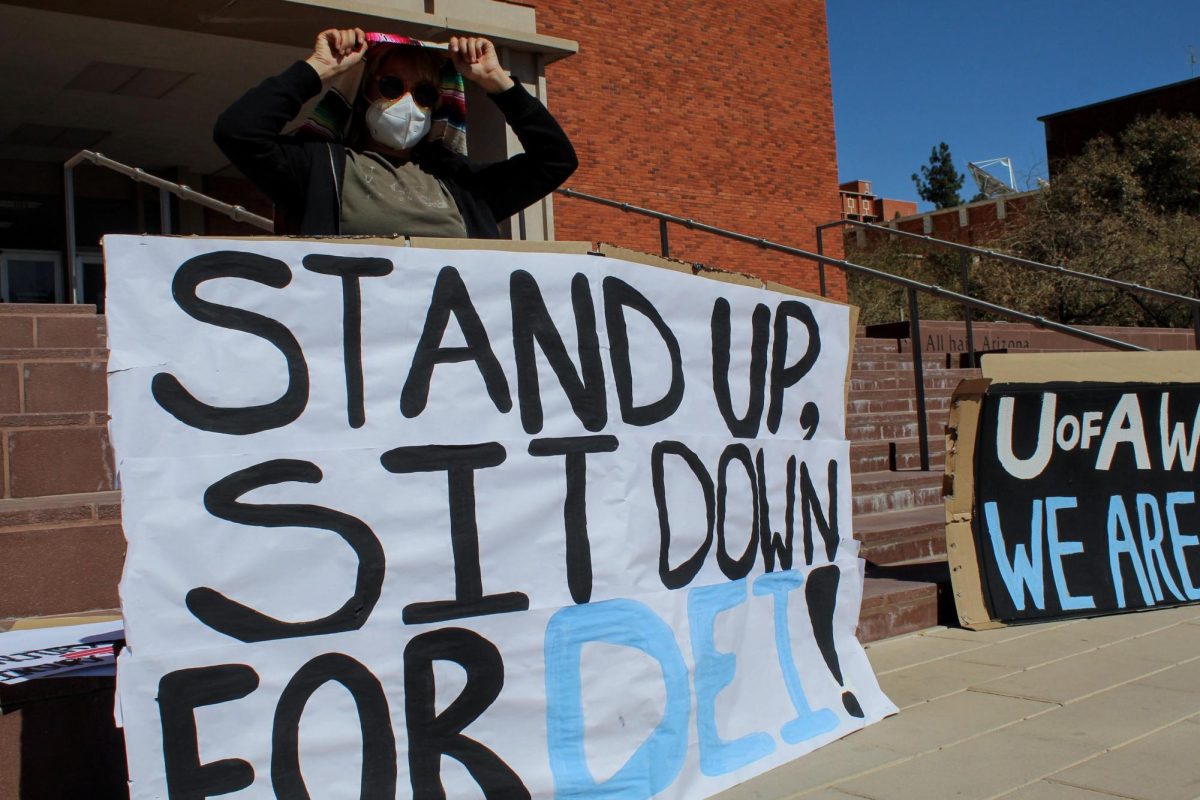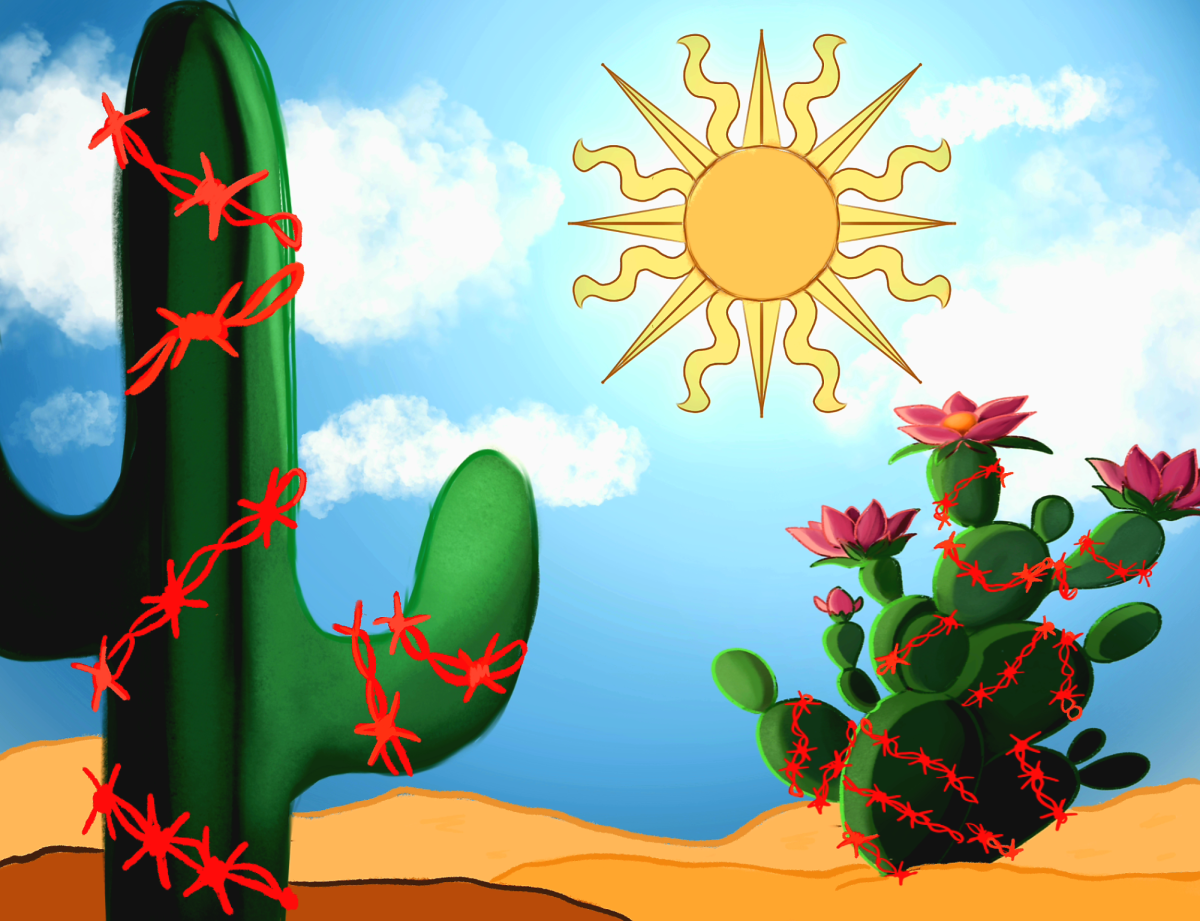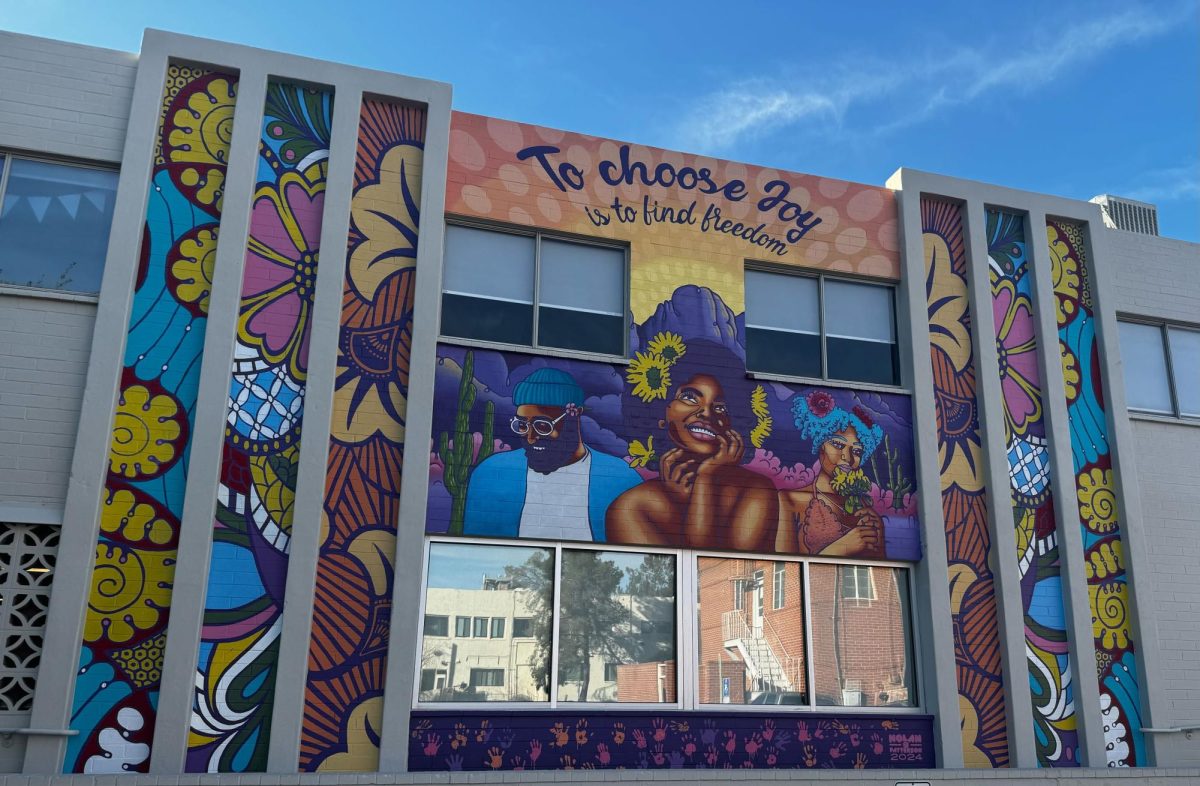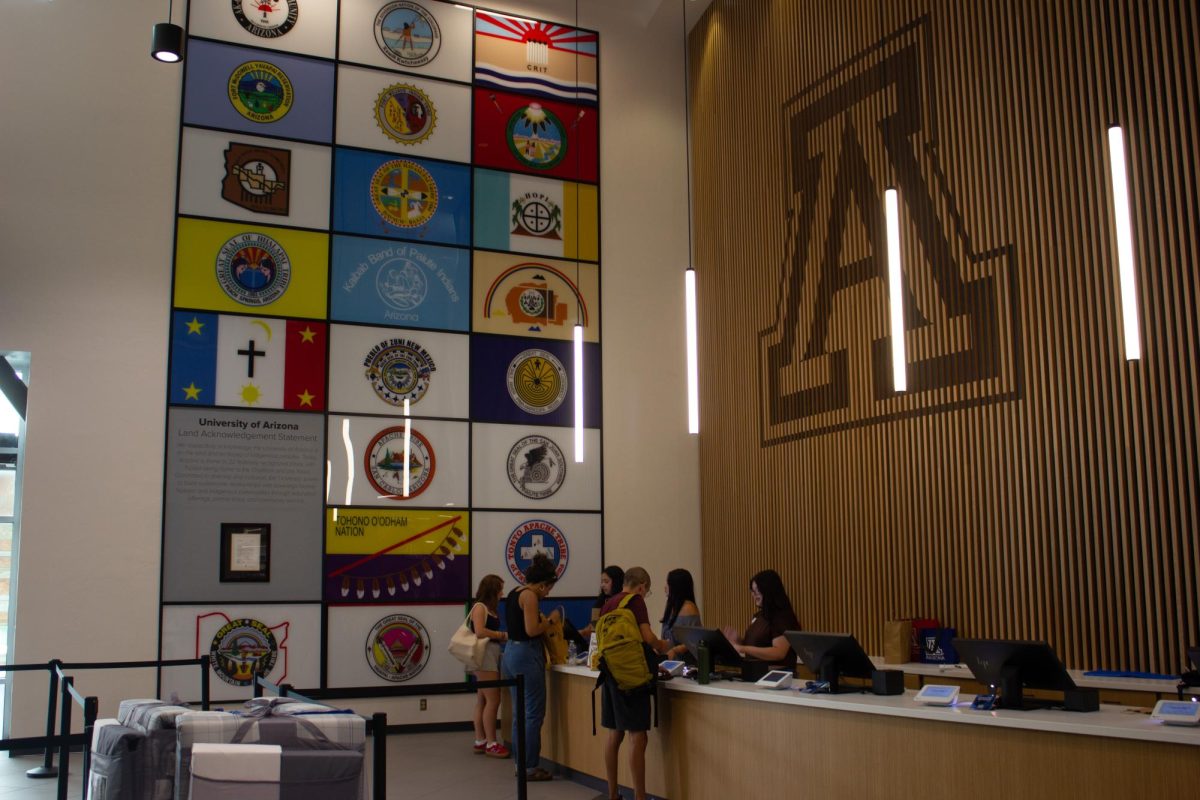On Saturday, Feb. 22, the University of Arizona Health Sciences’ Office of Diversity and Inclusion hosted its second annual LGBTQ+ National Symposium and Community Health Fair at the UAHS Wellness Walkway on the health sciences campus from 10 a.m. to 4 p.m.
The event was created to show the importance of inclusivity in health treatment, particularly to people on the health sciences campus.
“How can you fully treat a person properly if you don’t have their full identity of who they are and they don’t feel comfortable sharing their full identity of who they are with you?” said Lydia Kennedy, senior director of UAHS’ Office of Diversity and Inclusion, who called the event her “brainchild.”
When asked who the symposium was for, Kennedy responded quickly with “everyone,” explaining the importance of educating people on inclusive healthcare through a personal anecdote.
“I just went to a … first primary visit with a primary care physician,” Kennedy said. “I go into the room and then she starts asking me all these questions of gender identity, sexual orientation and then her comment proceeds to be: … ‘These questions are ridiculous. I hate asking people these questions. I’m sorry I have to ask you these.’ … And this is Feb. 21, 2020, and she was clear about her feelings toward those questions.”
Violet Siwik, co-chair of the UAHS LGBTQ+ Interest Group, which hosted the event, also spoke to providing an inclusive environment in health care.
“We impose so many of our beliefs … of sexuality,” she said. “This [event] is something everyone should have exposure to.”
Kennedy said the symposium was designed to be inclusive with presentations from many experts on different aspects of inclusive health care, including a keynote speech called “Supportive Environment for Those Providing Care” from Dr. Gabriel Sarah, an associate clinical professor in the University of California, San Francisco’s Department of Anesthesia and Perioperative Care.
Other presentations included “Re-Membering Indigenous Two-Spirits” by Nicholas Wilson from UA Native American Student Affairs and an LGBTQ+ youth panel to discuss some experiences of members of the community and how to be supportive.
Booths were also set up in Drachman Hall, which provided information for those in health sciences and people within the LGBTQ+ community. The booths ranged from information for LGBTQ+ business owners to advice on adopting a pet from the Humane Society.
“I want as many and all LGBTQ+ organizations and even allies to be here, to be that support network, to be that support system so [people] find everyone and they are aware of the resources in our community,” Kennedy said.
One booth gave information on a transgender support group called “Journeys: Exploration of Gender,” a group connected with the Southern Arizona Gender Alliance.
Danny Simms, a representative from the support group who helped manage the booth, said their main goal was “showing support and that we are out there and there is a place that transgender people can go to to get the support that they need.”
He went on to say, “It’s nice to know that the healthcare system is trying to branch out and be more supportive.”
Another booth from Tucson’s Rising Phoenix Fitness and Self Defense promoted their Rainbow Connection Self-Defense Program, which “caters to LGBTQ people and allies and other marginalized people in Tucson,” according to Tylar Zinn, the self-defense coach for the program.
“We really focus on being trauma-aware. We teach consent and boundary setting. We teach a lot of different classes like self defense for bathrooms, addressing bullies — a lot of it is based on potential hate crimes,” Zinn said. “It’s really confidence building, and people find it kind of therapeutic to take on that empowerment and being doing something for themselves.”
According to Kennedy, she would eventually like to expand the event nationally and further spread the information the symposium provides.
“It’s raising awareness, it’s providing education, it’s providing visibility,” Kennedy said. “It’s helping our community and national reputation, recognizing the importance of inclusive health care.”
Follow Sam Burdette on Twitter



